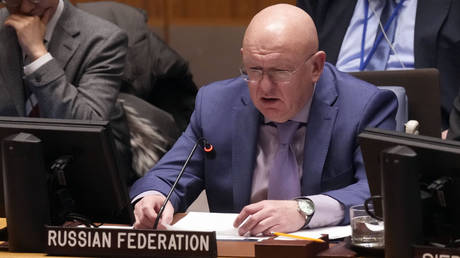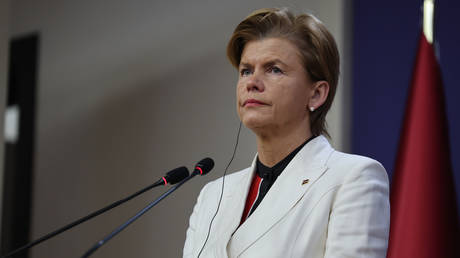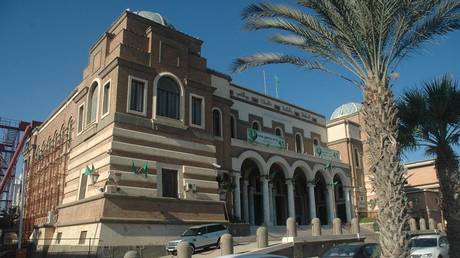The UN says the parties have signed a preliminary agreement on procedures for appointing new leadership of the institution
The UN Support Mission in Libya (UNSMIL) says representatives of the country’s rival governments have recommitted to appointing a new central bank governor to settle a dispute arising from the removal of the institution’s leader.
The agreement was reached by officials of the House of Representatives (HoR), based in Benghazi, and the High State Council (HCS) in the capital, Tripoli, following a new round of negotiations, UNSMIL said in a statement on Wednesday.
“The parties have signed an agreement in initial letters on procedures, standards and timetables for the appointment of a governor, deputy governor and board of directors of the Central Bank of Libya (CBL),” it announced.
According to the UNSMIL statement, the delegation will host a signing ceremony on Thursday in “the presence of a number of representatives of diplomatic missions in Libya.”
READ MORE: Libyan factions end talks as central bank crisis persists
UNSMIL has been engaging the Libyan factions since the country descended into fresh turmoil last month when the Presidential Council (PC) in Tripoli issued a decree removing CBL Governor Sadiq al-Kabir.
The once-prosperous North African country has had little peace since a 2014 NATO-backed uprising ousted longtime ruler Muammar Gaddafi. It has been split between two competing eastern and western administrations, with the interim Government of National Unity, installed as part of a UN-backed process to prepare for elections, headquartered in Tripoli. The other administration is based in Benghazi, the home of the national parliament, and several attempts to unite them have failed. The CBL is divided along the same political lines, but the Tripoli branch, which Kabir had led for over a decade, remains the only internationally recognized repository for oil revenues and foreign reserves.
Read more
Why Western ‘help’ is fueling constant chaos in this African nation
Libya’s eastern government condemned Kabir’s dismissal as “unacceptable,” with the HoR arguing that the removal and appointment of the governor should not be a unilateral decision by the Presidential Council. In protest, it banned all oil production and exports, vowing to maintain the blockage until the veteran’s reinstatement.
The UN mission, established to coordinate Libya’s political process, has repeatedly said the struggle for control of the CBL poses “serious risks” to the country’s population and relationships with its international partners.
Earlier this month, the HCS and the HoR had agreed to appoint a governor and board of directors for the CBL within 30 days. However, two weeks ago, UNSMIL said it was disappointed that the legislative bodies failed to finalize an agreement on resolving the crisis at the conclusion of talks.








+ There are no comments
Add yours